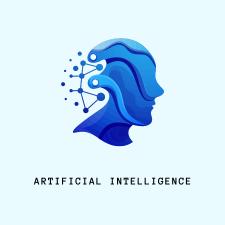
- nripage
- 06 Jun 2024 12:55 PM
- Workplace Insights
Artificial Intelligence (AI) and automation are revolutionizing the modern workplace, transforming how businesses operate and how employees perform their tasks. These technologies offer numerous benefits, including increased efficiency, reduced costs, and enhanced decision-making capabilities. Here are key roles that AI and automation play in today’s workplace.
1. Enhancing Productivity and Efficiency
Automating Routine Tasks: AI and automation can handle repetitive and mundane tasks, such as data entry, scheduling, and customer inquiries, freeing up employees to focus on more complex and creative work. For example, chatbots can manage customer service interactions, while robotic process automation (RPA) can streamline administrative tasks.
Streamlining Operations: AI algorithms can optimize supply chain operations, inventory management, and logistics, ensuring that resources are used efficiently and reducing operational costs. Automated systems can quickly adapt to changes in demand, minimizing waste and improving overall efficiency.
2. Improving Decision-Making
Data Analysis and Insights: AI systems can analyze vast amounts of data to uncover patterns, trends, and insights that might be missed by human analysts. This capability enhances decision-making by providing evidence-based insights. For example, AI can predict market trends, customer preferences, and potential risks, allowing businesses to make informed strategic decisions.
Predictive Maintenance: In manufacturing and other industries, AI-powered predictive maintenance can anticipate equipment failures before they occur, reducing downtime and maintenance costs. Sensors and AI algorithms monitor equipment performance and predict when maintenance is needed, ensuring continuous operation and extending the lifespan of assets.
3. Enhancing Customer Experience
Personalization: AI can personalize customer interactions by analyzing customer data and preferences. Personalized recommendations, targeted marketing, and customized services improve customer satisfaction and loyalty. For instance, e-commerce platforms use AI to suggest products based on browsing and purchase history.
24/7 Support: Automated customer service solutions, such as chatbots and virtual assistants, provide 24/7 support, improving response times and customer satisfaction. These tools can handle common queries, allowing human agents to focus on more complex issues.
4. Facilitating Remote Work
Collaboration Tools: AI-powered collaboration tools enhance remote work by providing features like real-time document editing, virtual meetings, and project management. Tools like Slack, Microsoft Teams, and Zoom integrate AI to improve communication and collaboration among remote teams.
Work Monitoring and Management: AI can assist managers in monitoring remote employees’ performance and productivity. Automated systems track progress on tasks, analyze productivity patterns, and provide insights into how remote teams can work more efficiently.
5. Enabling Innovation and Creativity
Augmenting Human Capabilities: AI can augment human capabilities by handling data-intensive tasks, allowing employees to focus on innovation and creativity. For example, AI can generate initial design concepts or draft reports, which human workers can then refine and enhance.
Innovation in Products and Services: AI drives innovation by enabling the development of new products and services. For instance, AI-powered analytics can identify gaps in the market, leading to the creation of new offerings that meet emerging customer needs.
6. Enhancing Security
Cybersecurity: AI enhances cybersecurity by detecting and responding to threats more quickly and accurately than traditional methods. AI systems can identify unusual patterns of behavior, flag potential security breaches, and automatically implement protective measures.
Fraud Detection: In finance and banking, AI-powered fraud detection systems analyze transactions in real time to identify suspicious activity. These systems can reduce fraud by quickly detecting and responding to potential threats.
Conclusion
The integration of AI and automation in the modern workplace offers significant benefits, including increased productivity, improved decision-making, enhanced customer experiences, and greater innovation. While these technologies can displace certain jobs, they also create new opportunities and roles that require advanced skills. Organizations must invest in training and development to help employees adapt to this evolving landscape, ensuring that the workforce is equipped to harness the full potential of AI and automation. Embracing these technologies can lead to more efficient, innovative, and competitive businesses in the digital age.








































